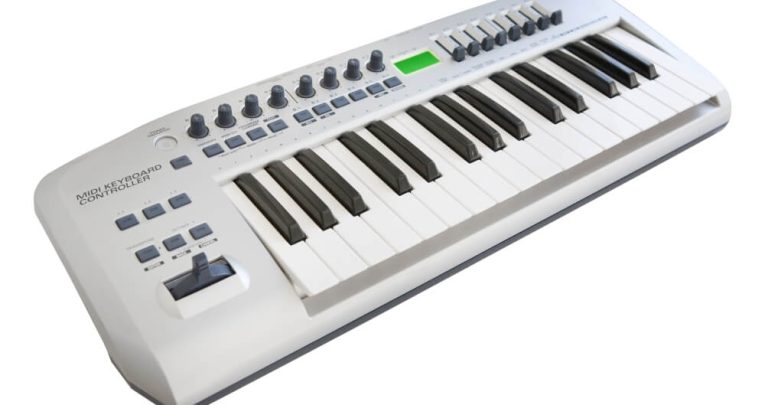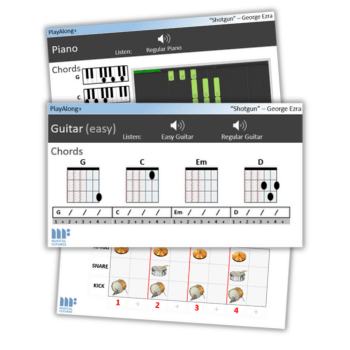GCSE Music – How to teach composition

Many music students consider composition to be a rarefied, almost unknowable art – but that’s really not the case, counters Paul Clark…

- by Paul Clark

A decade and a half ago, when I began mentoring local A Level music students in composition, their teachers and I would often be bewildered when their results arrived.
Pieces we’d considered worthy of As were being awarded Ds and vice versa. Was it down to the examiners’ tastes or prejudice? A decade and a half later, having now mentored hundreds of A Level students and provided CPD for teachers within GCSE music and music tech, that bewilderment has reduced considerably.
Demystifying the process
The process of composition itself is unnecessarily mystified, as if only gifted geniuses channelling the musical gods themselves can access its secrets. However, we only think this way as a culture because we haven’t practised creating music ourselves.
Think how crazy that is.
Most of us will never be great novelists or poets, but all of us regularly create sentences – just like I’m doing right now. Creative writing is central to how we learn our native language. Similarly, most of us like food, and can at the very least make a sandwich according to our tastes.
Conversely, most people only listen to music made by others. So when 16-year-old students, not to mention 25-year-old teachers, suddenly find themselves tasked with composing some music of their own, they quite reasonably get ‘the fear’.
In a recent Music Teachers Association survey, composition was singled out as the area teachers felt least confident in teaching and marking, yet it can constitute more than 30% of a student’s overall mark.
Over years of working in London schools with diverse cohorts who typically lack classical or jazz training, my aim has been to demystify the compositional process and deploy tools that help students perceive things in a more helpful way. Our average grade for composition is now A, and our predicted grades never more than a mark off.
Rookie errors
We’ve gained a much better understanding of the classic rookie errors students make, and devised ways of mentally preparing them for the challenge – the latter of which are being shared for free via the Ear Opener YouTube channel.
There you’ll find seven hours of content aimed at young music creators and featuring interviews with luminaries including legendary producer Brian Eno, rapper Lowkey, film composer Carly Paradis, classical composer Errollyn Wallen, pop songwriter Tristan Landymore and Radiohead’s Ed O’Brien.
This variety of voices is key, since we all have our own ways of working and enjoy different music. The guests all share their thoughts on the writing process, from starting with a blank page right through to learning how to absorb criticism. It’s not just crotchets and quavers.
Of particular interest to UK exam students and their teachers will be the two-part ‘27 ‘mistakes’ to avoid in music exam compositions’ video series. Starting with a melody bashed out on a piano by someone who considers themselves tone deaf and has never played a piano before, I show how it’s possible to create good music using a rudimentary tune and some specific tips.
The reality is that exam pieces need to demonstrate layers of knowledge. That means that if you write a megahit like Pharrell’s ‘Happy’, it might make you a millionaire, but it won’t get you an A at A Level, since there’s no melodic development.
Some ‘mistakes’ are horribly simple. For example, most classroom keyboards are small and don’t have keys for very high or low notes, so students don’t use them. Big mistake! Another is sticking to 120 beats per minute – the default tempo of most software – which is enough to drive most examiners mad as they sit through their 30th track of the day. Some tips are more technical, such as how to develop melodies in ambitious, yet achievable ways.
Writing a classic is hard, but writing a really good piece of music isn’t rocket science – and the benefits to your musical confidence and understanding may well stay with you for the rest of your life.
9 common compositional ‘mistakes’
• Too many ideas • Plodding basslines consisting of two or four notes per bar • No tension and release • Noodling melodies with no phrase structure • No dramatic contrasts • Section that don’t lead the ear to the next • Too much cutting and pasting • Insufficient space in the arrangement • No intro
The Ear Opener video series can be viewed at earopener.co.uk/videos
Paul Clark is a musician, composer and co-founder of Clod Ensemble; for more information, visit clodensemble.com or follow @clodensemble










